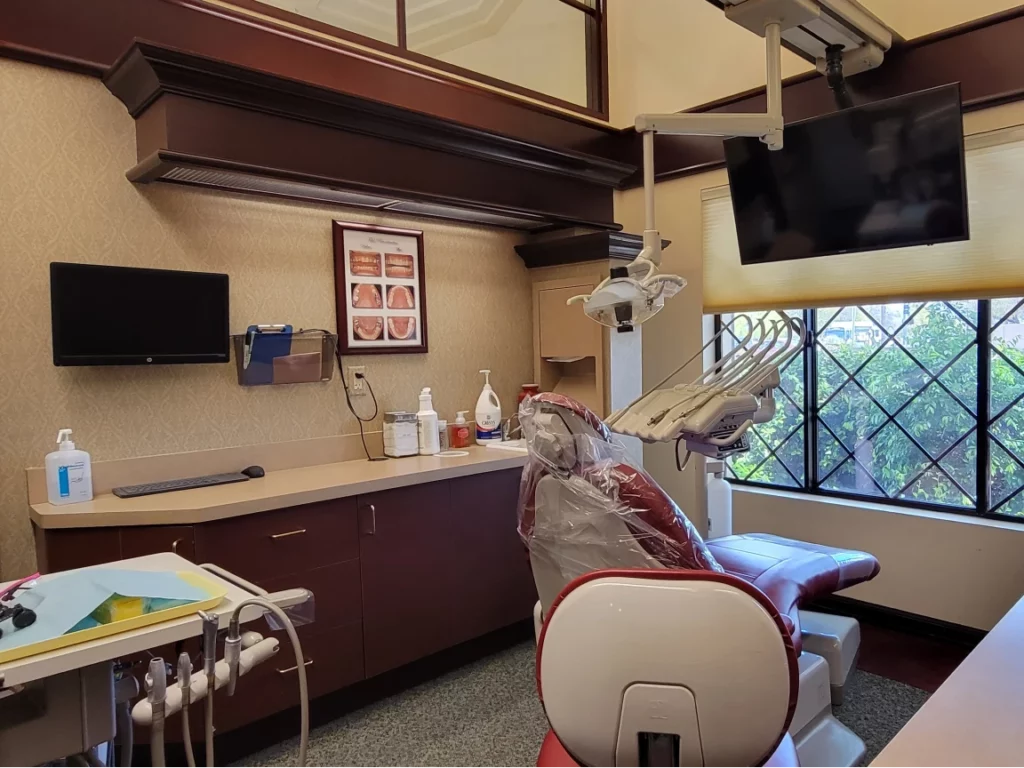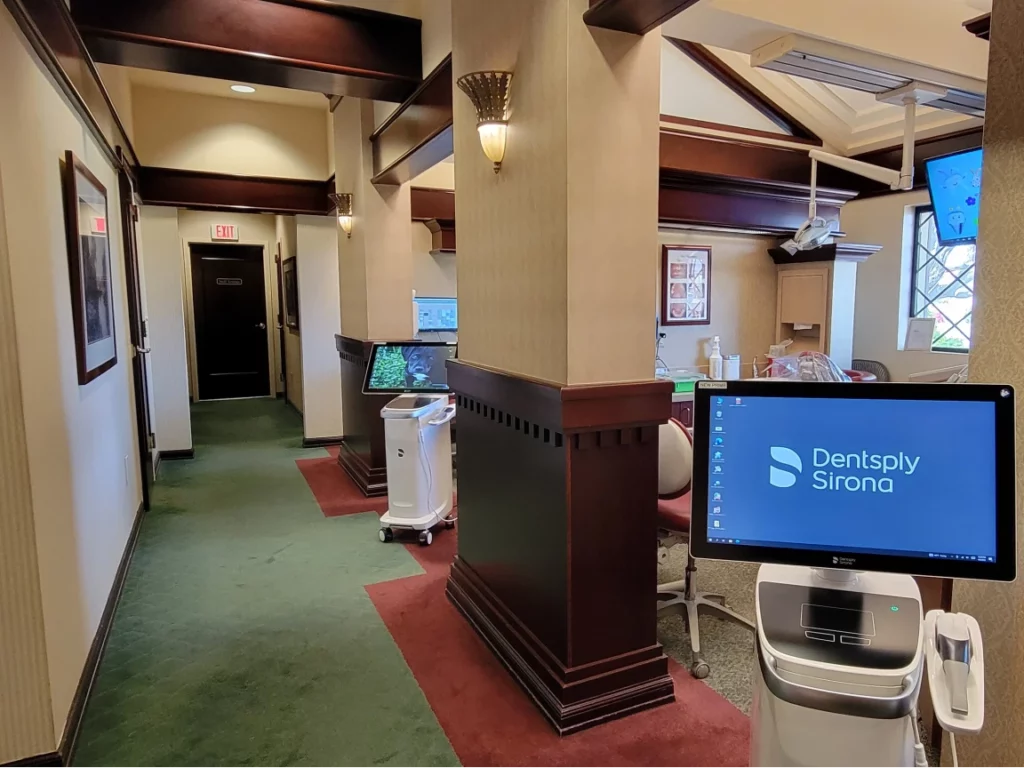Oral appliances offer simple, non-invasive treatment for a variety of conditions. Regardless of the application, every appliance we prescribe is custom-crafted just for you. Whether we’re treating nighttime sleep grinding, bite problems, or other issues, appliance therapy may be a valuable complement to your treatment. We use a variety of innovative designs depending on your treatment goals and preferences.
Some patients develop a subconscious habit of grinding their teeth, either during the day or at night. In many cases, the abrasive action occurs only during sleep, and for only a few seconds at a time. If you wake up with a sore jaw or a morning headache, chances are you are grinding your teeth during the night. In some patients, enlarged jaw muscles develop on the sides of the face from this nighttime grinding. These muscles are, ounce for ounce, the strongest in the body, which means they can do a lot of unnecessary damage.
The unusual activity not only wears down teeth and strains the overworked muscles, but compressive forces can also damage the complex jaw joints on one or both sides. Damage to the joints may lead to arthritic changes, chronic pain, and popping or clicking. Once these changes settle in, reversing their condition may become impossible.
Many people suffer needlessly from dangerous sleep disruptive disorders that keep them from getting enough oxygen at night. The risk of a heart attack is 23 times more likely than average with a sleep disorder, and 92% of stroke victims live unknowingly with sleep apnea before having a stroke.
Obstructive Sleep Apnea (OSA) is a breathing disorder characterized by brief interruptions of breathing during sleep due to a blockage in the airway. Obstructions occur when throat muscles, the tongue, tonsils, or the soft palate relax and cover the airway, preventing breathing. The obstruction results in a severe drop in blood oxygen levels throughout the night.
The American Academy of Sleep Medicine recommends oral appliances as primary therapy for the treatment of mild to moderate obstructive sleep apnea and for patients with severe sleep apnea who can’t tolerate CPAP treatment.
Oral appliances are devices that are placed inside the mouth to treat various dental or medical conditions. There are many different types of oral appliances, each designed for a specific purpose. Some examples include:
Oral appliances are often custom-made to fit each patient’s specific needs and are designed to be comfortable and effective. Dr. Dockstader and Dr. Nguyen can help determine if an oral appliance is right for you and recommend the best type of appliance for your needs.
Mouth guards can be effective in protecting teeth from grinding, which is also known as bruxism. When you wear a mouthguard, it creates a barrier between your upper and lower teeth, preventing them from coming into contact with each other and reducing the amount of damage caused by grinding.
However, it’s important to note that not all mouth guards are designed for this purpose. Boil-and-bite mouth guards that are commonly found in sports stores may not provide adequate protection for teeth grinding, as they are not specifically designed for this purpose. Instead, custom-made night guards, which are designed to fit your teeth precisely, are typically recommended for those who grind their teeth at night.
A night guard can also help to alleviate some of the symptoms associated with teeth grinding, such as headaches, jaw pain, and tooth sensitivity. If you suspect that you are grinding your teeth, you should give Arrowhead Ranch Dentistry a call. Dr. Dockstader and Dr. Nguyen can evaluate your teeth and recommend the best course of treatment.
If you have a custom mouthguard or night guard, it is essential to keep it clean to prevent the buildup of bacteria and other harmful substances that could affect your oral health. Cleaning your custom mouthguard is a simple process that can be done at home.
Here’s how to clean night guards and mouth guards:
By following these simple steps, you can keep your custom mouthguard or night guard clean and well-maintained, helping to ensure that it provides effective protection for your teeth and gums.
A night guard is a dental appliance that is designed to be worn while sleeping to protect the teeth and jaws from the effects of grinding or clenching. There are two main types of night guards: hard and soft.
The primary difference between a hard and soft night guard lies in the material they are made from. Hard night guards are made of a dense, rigid acrylic material that is designed to withstand the force of teeth grinding and provide maximum protection to the teeth. Soft night guards, on the other hand, are made from a more pliable material, such as silicone or rubber, that can be more comfortable to wear and may provide a better fit for people with a less severe teeth grinding or clenching habit.
While hard night guards may offer more protection against teeth grinding, they can also be more bulky and uncomfortable to wear, especially for people who have sensitive teeth or jaws. Soft night guards may be a better choice for people who have a milder teeth grinding habit or who have trouble adjusting to the sensation of wearing a night guard.
Ultimately, the choice between a hard and soft night guard depends on individual needs and preferences. Dr. Dockstader and Dr. Nguyen can help you determine which type of night guard is right for you based on your specific situation and the severity of your teeth grinding or clenching habit.
Our patients are our biggest fans. Here are a few highlights from our public reviews.
Monday
7:00AM – 3:30PM
Tuesday
7:00AM – 3:30PM
Wednesday
8:00AM – 4:30PM
Thursday
7:00AM – 3:30PM
Friday
7:00AM – 3:30PM
Saturday
CLOSED
Sunday
CLOSED
Copyright © 2023 Arrowhead Ranch Dentistry | Privacy Policy | Website by Elementus Media Group
We are happy to answer your questions. Please fill out our contact form and we will get back to you shortly!


